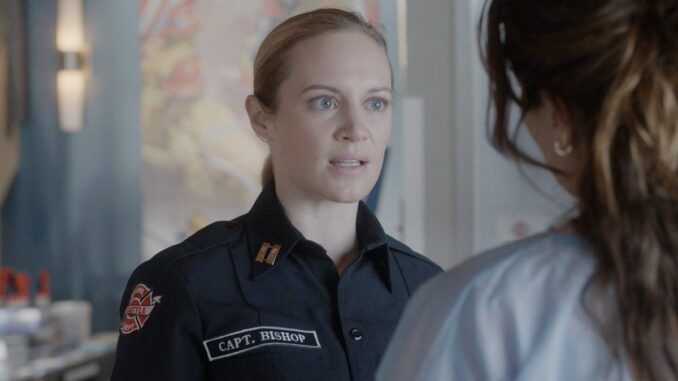
The Badge and the Burden: Why Being Captain on Station 19 Doesn’t Define True Leadership
In the scorching heat and controlled chaos of Station 19, the role of captain gleams like a polished badge – a symbol of authority, responsibility, and the highest echelon of a firefighter’s career. Yet, beneath the polished brass and the weight of the command, the series vividly illustrates a profound truth: the title of captain, while signifying a hierarchical position, does not inherently define true leadership. Leadership, in its purest form, transcends rank; it is a complex tapestry woven from integrity, empathy, foresight, the ability to inspire, and the courage to serve others, often from the most unexpected corners of the firehouse.
The initial portrayal of captains on Station 19 often serves as a cautionary tale of how the weight of the badge can obscure, rather than illuminate, true leadership. Pruitt Herrera, the patriarch of the station and a legendary captain, embodied an old-school, often paternalistic, form of command. While his experience was undeniable and his loyalty fierce, his leadership was at times stifled by a reluctance to delegate, a tendency to micromanage, and an inability to truly trust the evolving capabilities of his crew. His grip on power, even when his health faltered, showed a man conflating his identity with his title, rather than adapting his leadership to the needs of a changing station. Similarly, Robert Sullivan’s tenure as captain, particularly in its earlier stages, was marred by a clandestine addiction and a focus on self-preservation that actively undermined the trust essential for genuine leadership. He held the position, but his actions often spoke to a profound disconnect from the principles of integrity and selfless service that true leadership demands. The badge was on his uniform, but the true mantle of leadership remained elusive.
Conversely, Station 19 consistently showcases characters who, despite lacking the captain’s title, embody the very essence of true leadership. Ben Warren, for instance, a mere medic and later an aid car specialist, consistently acts as the station’s moral compass and an unparalleled innovator. His development of Crisis One – a groundbreaking mental health response unit – was not mandated by any rank, but born from a deep understanding of community needs and a relentless drive to find solutions. Ben leads through empathy, quiet wisdom, and an unwavering commitment to the well-being of others, often guiding his higher-ranked colleagues with insightful questions and unwavering support. He commands respect through his actions, not his position.
Similarly, Vic Hughes, with her raw emotional intelligence and profound capacity for empathy, frequently steps into leadership roles not through orders, but through connection. Whether it's calming a distraught victim, mediating a conflict within the team, or advocating tirelessly for mental health resources, Vic’s influence radiates from her innate ability to understand and respond to human need. She may not hold the formal power of a captain, but her capacity to inspire, to unite, and to foster resilience within the station is a testament to her inherent leadership qualities. Even Dean Miller, before his tragic death, transcended his firefighter rank to become a visionary leader. His unwavering dedication to the community, his fight against systemic inequities, and his unwavering belief in Crisis One showcased a form of leadership driven by conviction and a deep sense of purpose, far beyond the confines of a fire truck or a department hierarchy.
Even for those who eventually wear the captain's badge, the series illustrates that the journey to true leadership is an arduous path of growth and self-discovery. Andy Herrera, inheriting her father’s legacy, initially grappled with self-doubt and the overwhelming expectations tied to the title. Her true leadership emerged not when she was given the badge, but as she learned to trust her instincts, collaborate with her team, and lead with vulnerability and authenticity. Similarly, Maya Bishop, fiercely ambitious and dedicated, achieved the captaincy through sheer will, only to discover that leading meant more than just being the best or the fastest. Her early tenure was marked by a rigidity and an inability to connect emotionally, leading to conflict and mistrust. Maya’s true leadership only began to blossom when she learned humility, vulnerability, and the profound importance of team cohesion over individual accolades – lessons that were often painful and required her to shed the very notion of what she thought a captain should be.
In the crucible of Station 19, where life-and-death decisions are made in split seconds, the difference between a captain and a true leader becomes starkly clear. The title grants authority, but true leadership earns respect. It is an ongoing process of learning, adapting, and serving, driven not by the desire for power, but by an unwavering commitment to the well-being of the team and the community. The firehouse teaches that while a badge may designate rank, it is the character, courage, and compassion of the individual that truly ignite the flame of leadership.
